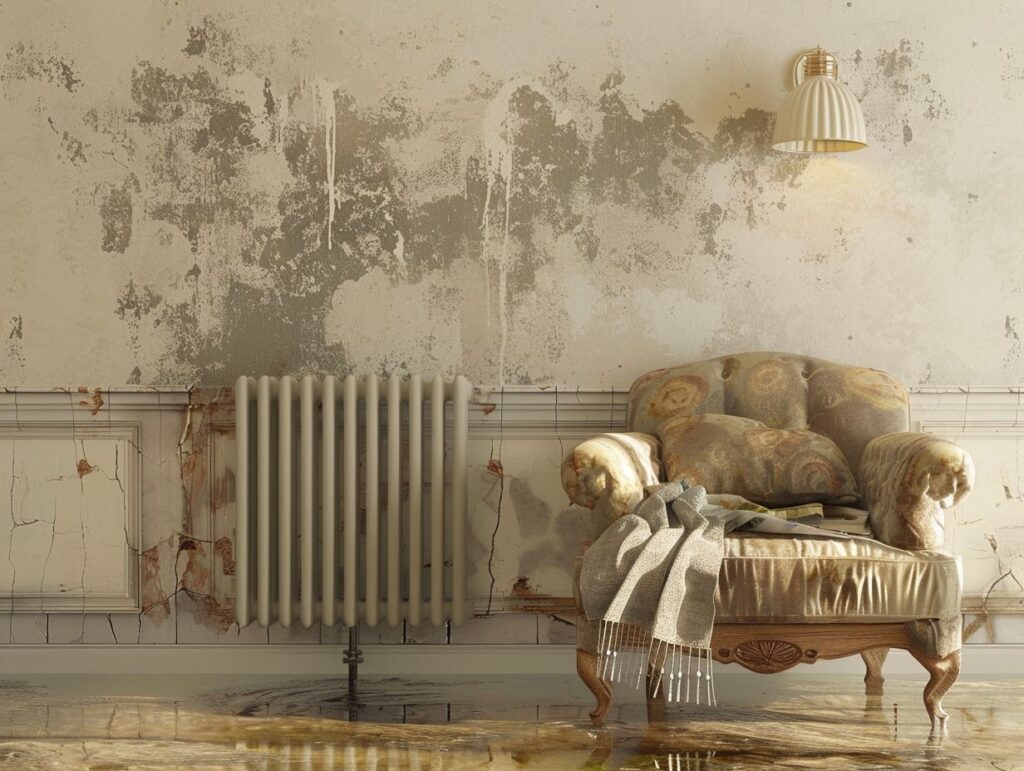If your living room radiator is leaking and causing you stress, the potential causes of this issue, common indicators to watch for, and solutions will be discussed. From pinpointing the source of the leak to offering do-it-yourself remedies and maintenance suggestions, comprehensive coverage will be provided.
You will also acquire knowledge on preventing radiator leaks to maintain a warm and comfortable home environment throughout the year.
Key Takeaways:
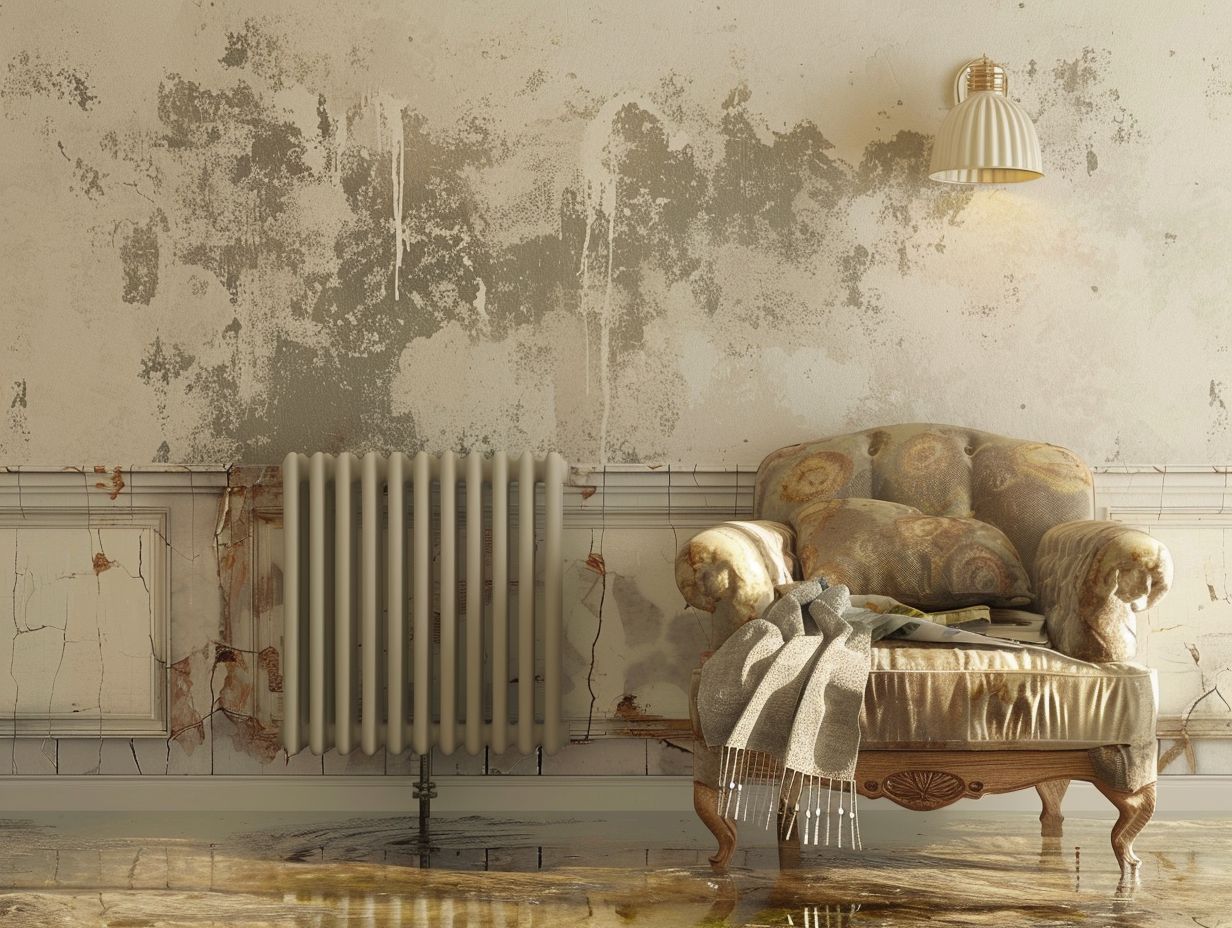
- If you notice visible water or rust stains or hear unusual sounds or smells, your living room radiator may be leaking.
- Common causes of leaks include corrosion, loose fittings, and damaged valves. Identify the source of the leak to determine the best solution.
- DIY solutions for fixing a leaking radiator include tightening fittings, replacing valves, and patching holes. If the issue persists, it’s best to call a professional.
Possible Causes of a Leaking Radiator
When faced with a leaking radiator, it is essential to investigate various potential issues within the heating system to effectively resolve the problem.
One prevalent reason for radiator leaks is corroded pipes, a condition that may develop gradually due to prolonged exposure to water circulating through the system.
Another possible cause could be malfunctioning valves incapable of regulating the correct water flow, resulting in pressure accumulation and eventual leaks. Additionally, a loose nut linking the radiator to the heating system could also be a source of leaks.
Recognising these common causes enables homeowners to troubleshoot and proactively prevent radiator leaks from escalating into more serious problems.
Common Reasons for Leaks
Common reasons for radiator leaks in your system may stem from issues with the valve, pipe corrosion, or damage to the radiator body. It is crucial to identify these causes accurately to facilitate effective repairs.
Valve malfunctions, often attributed to worn-out or damaged spindle or gland components within the valve system, can be a leading cause of leaks.
Pipe corrosion is another common culprit, as the internal walls of pipes tend to deteriorate over time, leading to leaks. Additionally, any physical damage to the radiator body, such as cracks or punctures, can result in coolant leakage.
Comprehensive understanding of the interconnected nature of these issues is vital for diagnosing and efficiently resolving radiator leaks in your system.
Identifying the Source of the Leak
When addressing a leaking radiator, you need to pinpoint the exact source of the leak. This can be accomplished through careful inspection and systematic troubleshooting.
An effective method for identifying the source of radiator leaks is to examine the fittings and connections for any signs of moisture or drips. Checking the radiator valve and seals for wear and tear can aid in locating the issue.
Another common technique is to use PTFE tape to seal potential leaks in joints or threaded connections. By following these steps and conducting a thorough inspection, you can narrow down the source of the leak and take appropriate measures to resolve it effectively.
Signs of a Leaking Radiator
Recognising signs of a leaking radiator is crucial for maintaining the efficiency of your heating system. Look out for water stains or unusual sounds, as they may indicate the presence of a leak. Rust stains around the radiator could also signal a leak, potentially pointing to corrosion within the system.
It’s essential to monitor any changes in your heating system’s temperature, as a leak can cause it to overwork and result in higher energy consumption. If you notice decreased heating effectiveness in specific areas of your home, a radiator leak could be the culprit.
Regular inspection of visible radiator components can help in early detection of leaks and prevent further damage.
Visible Water or Rust Stains
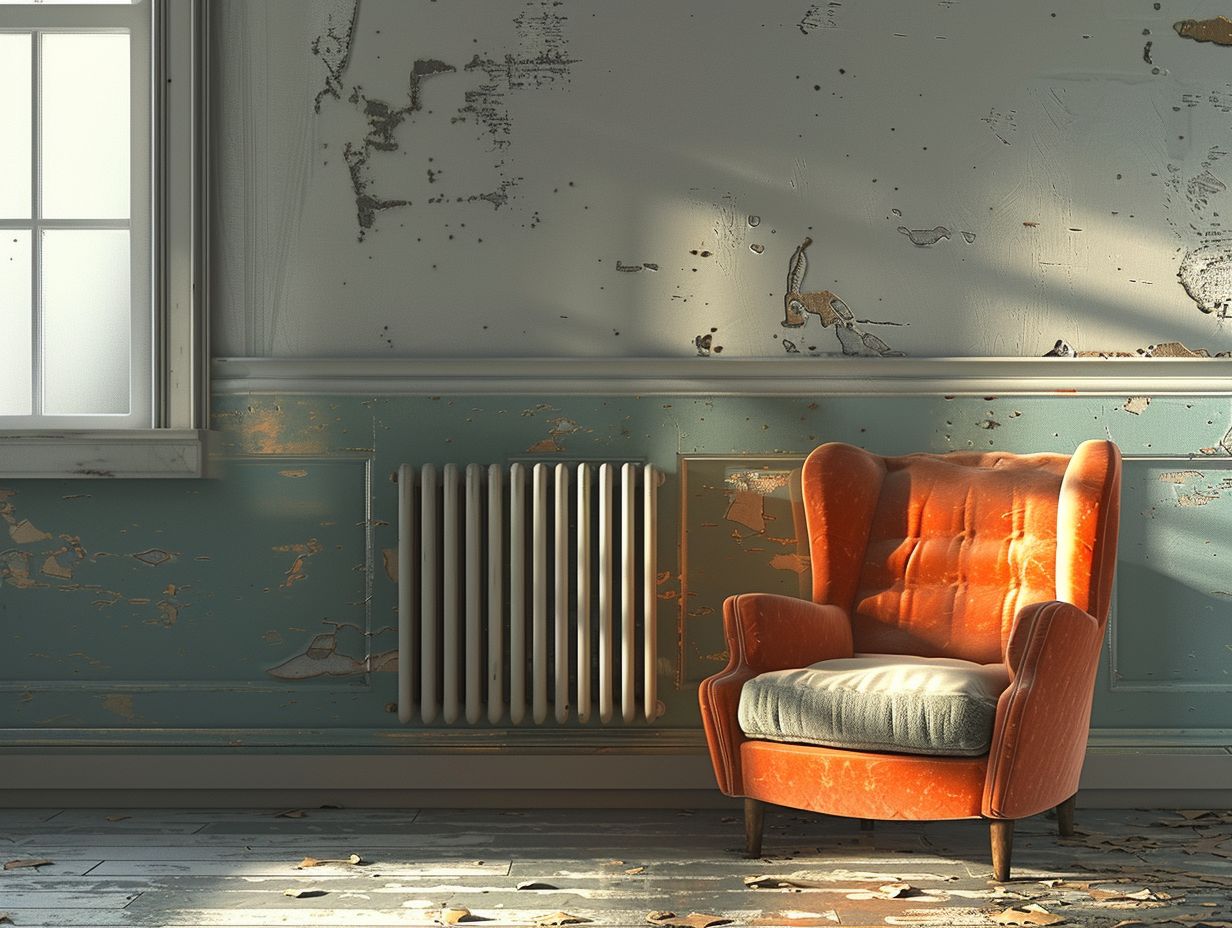
Visible water or rust stains around your radiator can serve as a clear indicator of a potential leak within your system. These stains may suggest water leaking either into or out of the radiator.
Leakages from radiators not only result in unsightly stains on your floor but also signal possible harm to the entire heating system.
The presence of water or rust stains adjacent to a radiator demands immediate action as unattended leaks can cause decreased heating efficiency and worsen the condition of the radiator. It is imperative to promptly deal with any signs of leakage to avoid expensive repairs and uphold the optimal operation of your heating system.
Unusual Sounds or Smells
Unusual sounds or smells coming from your radiator may serve as early indicators of a possible leak or heating system malfunction. It is crucial to promptly address these indicators.
Failing to identify and resolve these atypical signs can result in more severe problems later on. A radiator leak might suggest a damaged pipe or a faulty connection. An enduring smell could indicate insulation issues, requiring immediate intervention.
Neglecting these warnings not only compromises the effectiveness of your heating system but also presents safety hazards. Swift solutions such as applying insulation tape or securing loose connections can prevent minor concerns from evolving into expensive repairs.
How to Fix a Leaking Radiator
To address a leaking radiator, consider employing various DIY solutions or enlisting professional assistance. Having a thorough understanding of the repair process is crucial for achieving a successful resolution.
- DIY approaches for addressing a leaking radiator may involve tasks such as tightening valve connections,
- bleeding the radiator to eliminate trapped air, or
- applying a sealant designed for radiator leaks. These methods are typically straightforward and can often effectively resolve minor leaks.
It is essential to be able to discern when the radiator issue necessitates the expertise of a professional plumber. If the leakage persists following attempts at DIY remedies, or if the complexity of the problem is apparent, it is advisable to contact a plumber to prevent further damage and ensure a proper, enduring repair.
DIY Solutions
When addressing a leaking radiator yourself, consider utilising PTFE tape to seal leaks or ensuring loose nuts are tightened. These straightforward solutions are frequently sufficient in resolving minor leaks.
Instances of water leakage from a radiator are a typical issue faced by homeowners. Typically, leaks arise from deteriorated seals or improperly secured connections. Applying PTFE tape to the threads of a leaking joint and confirming that all nuts are adequately tightened can prevent water seepage.
Implementing these preventative actions can yield cost savings by averting potential repairs and contribute to the continued efficiency of your heating system.
When to Call a Professional?
Knowing when to seek professional help from a plumber is crucial, especially when dealing with complex radiator leaks or issues requiring specialised expertise. Recognising the need for professional assistance can help prevent further complications.
One common situation where it is highly advisable to enlist the services of a professional plumber is when addressing corrosion within the radiator system. Corrosion poses a significant risk, potentially causing extensive damage and undermining the heating system’s efficiency.
Without proper evaluation and repair, the consequences could entail costly repairs or even necessitate a complete system replacement.
When the issue involves intricate components within the radiator or heating system, attempting a do-it-yourself solution may exacerbate the problem. Professional plumbers are equipped with the necessary knowledge and tools to effectively address these complexities, ensuring the smooth operation of the system.
Preventing Radiator Leaks
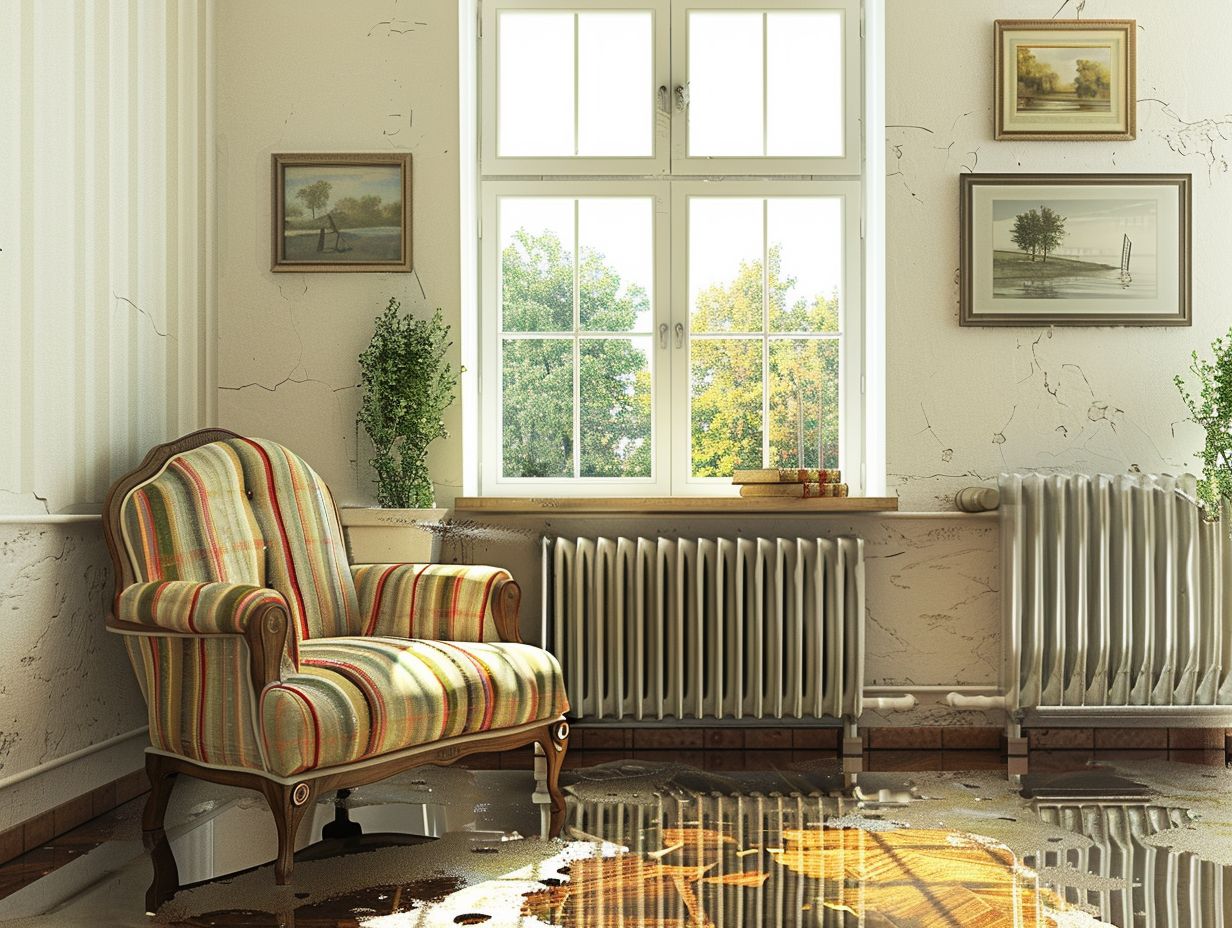
Preventing radiator leaks involves regular maintenance, timely replacements, and proactive measures to address corrosion issues. By implementing preventive strategies, you can avoid costly repairs.
One crucial aspect of radiator maintenance is checking the condition of the joint connections regularly. Damaged joints can lead to leaks, so ensuring they are properly sealed is essential. Keeping the heating system clean and free from debris can prevent corrosion build-up, which is a common cause of radiator leaks.
It is also recommended to schedule professional inspections periodically to identify potential issues early on. Taking these preventive steps can help maintain the efficiency and longevity of your heating system.
Maintenance Tips
Regular maintenance of your radiator, including checking valves and identifying leaks early, is crucial to preventing major issues. By implementing these maintenance tips, you can extend the lifespan of your heating system.
One important aspect of radiator maintenance is regularly inspecting the valves to ensure they are functioning properly. Valves play a vital role in controlling the flow of hot water through your radiator, so it is essential to verify that they are not stuck or leaking.
Remain vigilant for any signs of water leaks around the base of the radiator or on the floor, as early detection can help prevent water damage and expensive repairs. By maintaining a proactive approach in your maintenance routine, you can ensure your heating system operates efficiently and effectively.
When to Replace Your Radiator?
Knowing when to replace your radiator is essential for maintaining an efficient heating system. Signs of persistent leaks or extensive corrosion may indicate the need for a radiator replacement.
Addressing leaks promptly is crucial, as they can lead to coolant loss, overheating, and engine damage. If you notice rust or corrosion on the radiator, it’s a clear sign that a replacement is necessary.
To start the replacement process, use a spanner to disconnect the hoses and a container to collect any coolant. Next, remove the old radiator by unscrewing the mounting bolts and carefully lifting it out. Make sure to clean the mounting area before installing the new radiator.
Use tape and nuts to secure the new radiator in place, reconnect the hoses, and refill the coolant to complete the replacement.
Frequently Asked Questions
Why Is My Living Room Radiator Leaking?
There could be several reasons why your living room radiator is leaking:
- There may be a crack or hole in the radiator itself
- The valve or pipe connecting the radiator to the heating system may be loose or damaged
- Corrosion or rust inside the radiator may have caused a leak
- The pressure in the heating system may be too high, causing the radiator to burst
How can I tell if my living room radiator is leaking?
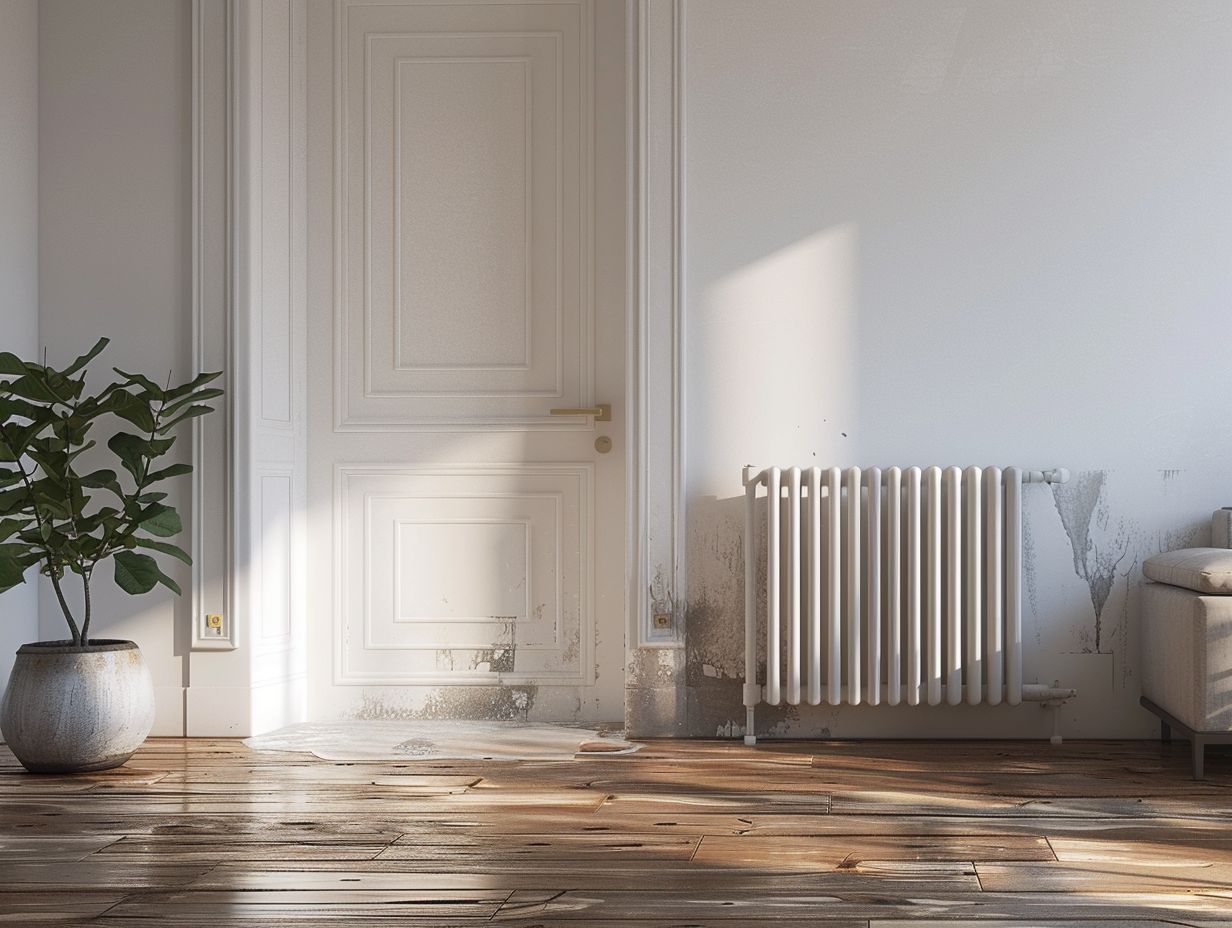
There are a few signs that can indicate a leak in your living room radiator:
- You may notice water pooling around the base of the radiator
- The floor or wall near the radiator may be damp or discoloured
- The radiator may make hissing or gurgling noises while in use
- You may notice a decrease in heating efficiency in the room
Can I fix a leaking radiator on my own?
Fixing a leaking radiator can be a complicated and potentially dangerous task, so it is best to leave it to a professional plumber or heating engineer. They have the proper tools and knowledge to safely and effectively repair the leak.
How much will it cost to fix a leaking living room radiator?
The cost of fixing a leaking living room radiator can vary depending on the cause and severity of the leak. It is best to get quotes from a few different plumbers or heating engineers to get an accurate estimate.
Is a leaking radiator dangerous?
A leaking radiator can be dangerous if not addressed promptly. The leaking water can cause damage to your floors, walls, and furniture, and can also lead to mould growth. Additionally, a leaking radiator can cause a decrease in heating efficiency and potentially damage your heating system.
How can I prevent my living room radiator from leaking?
Regular maintenance and inspection of your heating system can help prevent leaks in your living room radiator. It is also important to monitor the pressure in your heating system and make sure it is not too high, as this can cause the radiator to burst. If you notice any signs of a leak, it is best to call a professional to address the issue before it becomes a bigger problem.

